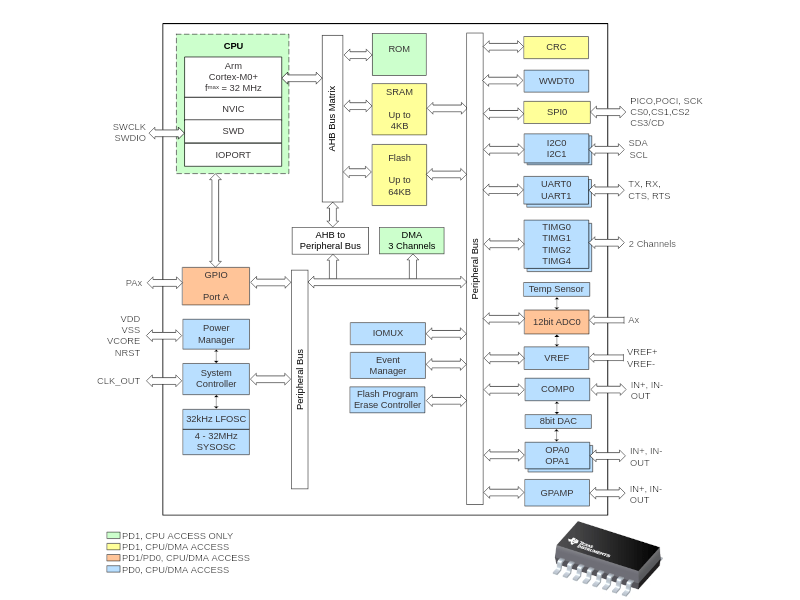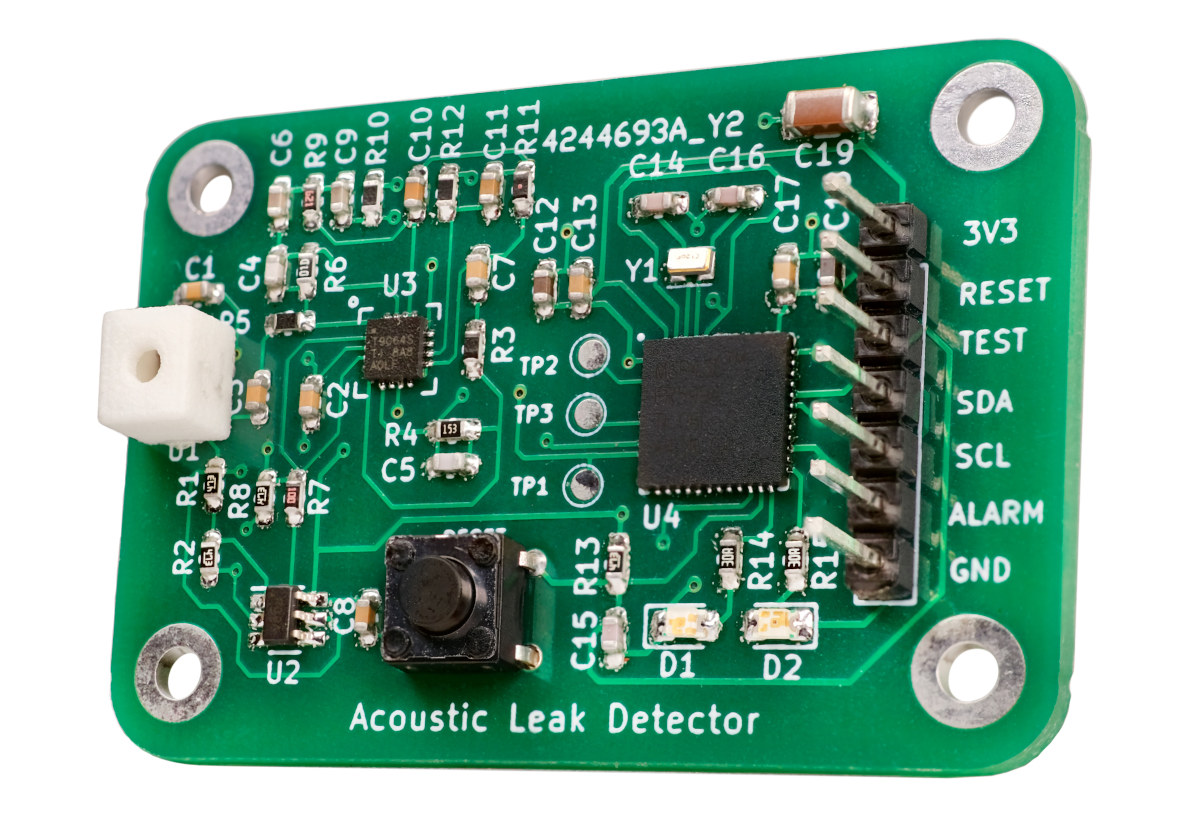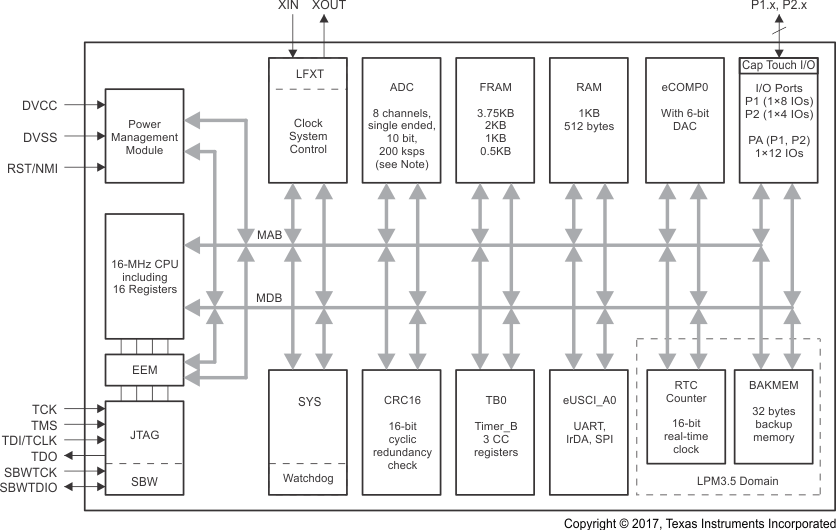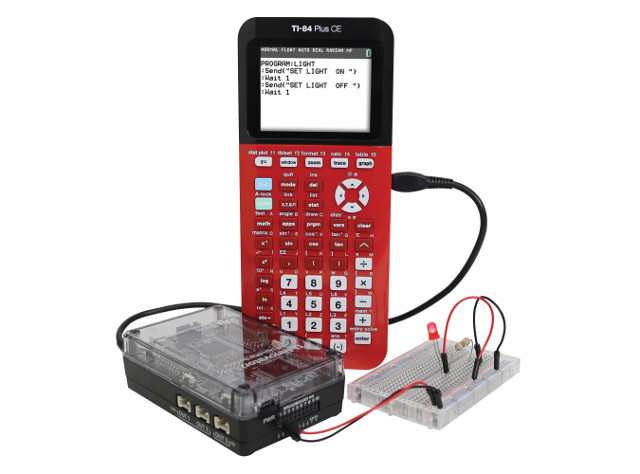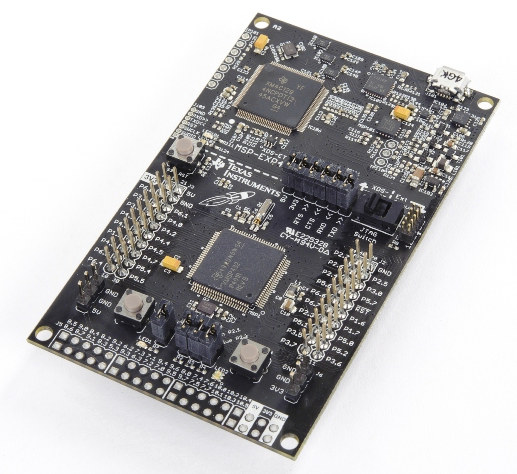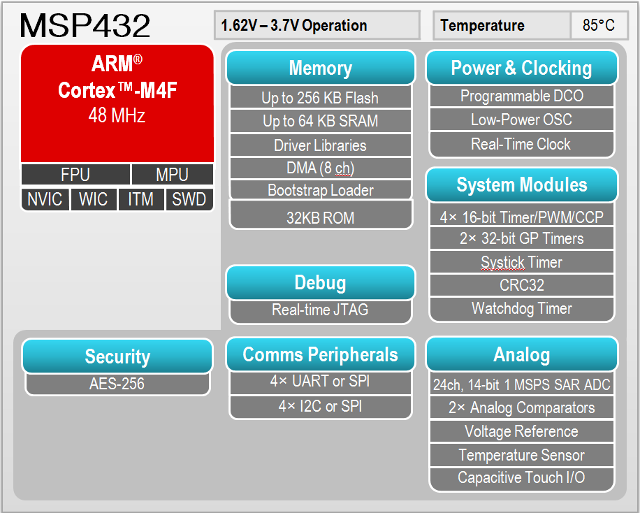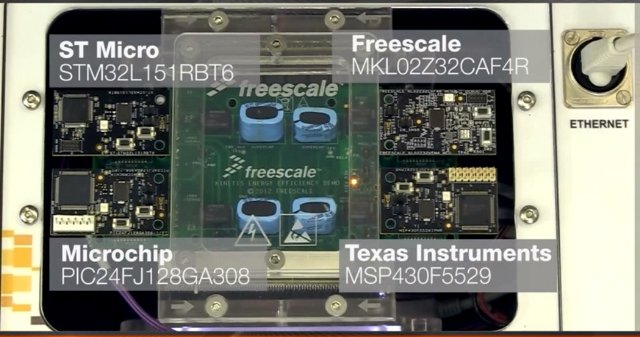Texas Instruments has just introduced its low-cost MSPM0 Arm Cortex-M0+ microcontroller portfolio comprised of the MSPM0L series with a 32 MHz CPU, up to 64 kB of flash, and 4 kB SRAM, and the MSPM0G series with an 80 MHz CPU, up to 128 kB of flash and 32 kB SRAM. Texas Instruments MSPM0L MSPM0L1306 key features: CPU – Arm 32-bit Cortex-M0+ core @ up to 32 MHz Memory – Up to 4KB SRAM Storage – Up to 64KB flash Digital peripherals 3-channel DMA controller 4x 16-bit general-purpose timers, each with two capture/compare registers supporting low-power operation in STANDBY mode, supporting a total of 8 PWM channels Windowed watchdog timer Analog peripherals 12-bit 1.45-Msps analog-to-digital converter (ADC) with up to 10 total external channels Configurable 1.4-V or 2.5-V internal ADC voltage reference (VREF) 2x zero-drift, zero-crossover chopper operational amplifiers (OPA) 1x general-purpose amplifier (GPAMP) 1x high-speed comparator (COMP) with 8-bit […]
AquaPing is an open-source, battery powered acoustic water leak detector module (Crowdfunding)
The AquaPing is an open-source hardware, ultra-low power acoustic water leak detector sensor based on Texas Instruments MSP430 microcontroller and a microphone that can detect leaks without having to do any plumbing, instead capturing audio for water leak detection, and it even works for leaks behind walls. All signal processing and analysis occur on the MSP430 MCU, so no audio is streamed to the cloud and eavesdropping is impossible, plus the sensor only captures high frequencies out of the range of normal conversations, so eavesdropping is not feasible, plus those higher frequencies are also said to provide highest sensitivity and reliability. AquaPing specifications: MCU – Texas Instruments MSP430FR5994 microcontroller to perform FFT spectral analysis (10x faster/efficient than ARM-Cortex M0+) Audio capture – MEMS microphone covered by a small rectangular plastic structure to form a Helmholtz resonator. Minimum detectable leak rate – 0.01 gpm (gallon per minute) depending on stand-off distance […]
Texas Instruments MSP430 Value Line Sensing MCUs Sell for 25 Cents and Up
Texas Instruments MSP430 16-bit mixed signal microcontroller has been around since at least 2004, and the last time I played with the MCU was with eZ430-Chronos wireless watch development kit in 2011. Over the years, the company has added more parts to its MSP430 MCU portfolio, and they recently added two new MSP430 Value Line Sensing MCUs that offer up to 25 functions (timers, I/Os, reset controller, EEPROM…) for as low as 25 cents, as well as a new MSP430FR2433 LaunchPad development kit . MSP430FR2000 and MSP430FR2100 MCUs have the same features set, except for the memory (512 vs 1024 bytes): 16-Bit RISC Architecture up to 16 MHz Memory / Storage MSP430FR2000 (new) – 0.5KB of Program Ferroelectric RAM (FRAM) + 512 Bytes of RAM MSP430FR2100 (new) – 1KB of Program FRAM + 512 Bytes of RAM MSP430FR2111 – 3.75KB of Program FRAM + 1KB of RAM MSP430FR2110 – 2KB of Program FRAM + 1KB of RAM Supply Voltage […]
TI Innovator Hub Connects MSP432 LaunchPad Board to TI Graphing Calculators
I remember when I was in high school we all had those TI calculators to cheat enhance our chances of passing exams, but Texas Instruments has now launched what it calls TI-Innovator Hub based on a MSP432 LaunchPad board that connects to some of their graphing calculators and allows student to program and control external hardware through their calculators. Innovator Hub hardware specifications: MSP-EXP432P401-ET TI LaunchPad Board 3x input ports, 3x output ports, I²C port Breadboard connector with 20 labeled pins USB Mini USB Port (DATA port for connection to a TI graphing calculator, or a computer running TI-Nspire CX software) Micro-USB port (POWER port to connect to external power source) Misc – Red LED, RGB LED, Light Brightness Sensor, and speaker Enclosure The hub can then be programmed using TI-84 Plus CE (TI Basic language) or TI-Nspire CX (Lua language) graphing calculators. It’s a bit like playing with Arduino […]
Texas Instruments MSP432 LaunchPad Development Board Sells for $4.32 (Promo)
Texas Instruments has started the year by offering a deal on their 32-bit MSP432 LaunchPad Development Kit, dropping the cost from $12.99 to $4.32 for a limited time with coupon code 432@432. MSP432 Launchpad’s key features: MCU – Texas Instruments MSP432P401R ARM Cortex M4F MCU @ 48 MHz with FPU and DSP, 256KB flash, 64KB RAM Expansion – 40 pin BoosterPack Connector, and support for 20-pin BoosterPacks Misc – 2 buttons and 2 LEDs for user interaction Debugging – Back-channel UART via USB to PC, Onboard XDS-110ET emulator featuring EnergyTrace+ Technology Power – Micro USB connector The kit includes the board, micro USB cable and a quick start guide. There’s plenty of technical documentation for the board, although for some unknown reasons, I can’t download any PDF documents from TI website tonight. The coupon is still working, but free shipping on TI eStore seems to be a thing of the […]
Texas Instruments Introduces MSP432 ARM Cortex-M4F MCU Family
Texas Instruments has just launched a successor for its 16-bit MSP430 MCU family with MSP432 MCU series featuring a 32-bit ARM Cortex-M4F core, a DSP, up to 256 KB flash, up to 64 KB SRAM, and according to the company ” delivering a ULPBench score of 167.4 outperforming all other Cortex-M3 and -M4F MCUs on the market”. The new MCU family targets consumer & portable electronics, building & factory automation & control, smart grid & energy, healthcare & fitness, and wearables applications. Key features listed for MSP432P4xx: MCU – 32-bit ARM Cortex-M4F up to 48 MHz with FPU and DSP. Delivers 3.4 Coremark/MHz Memory – Up to 64 KB RAM; Selectable RAM retention Storage – Up to 256 KB Flash; dual bank for simultaneous reading and writing Security – 256-bit AES encryption, JTAG access lock, 4 IP Protection regions EnergyTrace Technology Real-time power measurement and debugging Generate application energy profiles including […]
MCU Energy Efficiency Benchmark – Freescale KL02, Microchip PIC24, TI MSP430, and STMicro STM32L
Freescale has recently uploaded a video comparison the energy efficiency of several micro-controllers: Freescale Kinetis KL02, Texas Instruments MSP430, STMicro STM32L, and Microchip PIC24. Since it’s a Freescale video, we already know the winner, but the test they performed it still interesting, and it shows drastic performance differences between architectures. The used the following exact MCU for testing: Freescale MKL02Z32CAF4R – Cortex M0+ @ 48 MHz STMicro STM32L151RBT6 – Cortex M3 @ 32 MHz Microchip PIC24FJ128GA308 – 16-bit MCU @ 32 MHz Texas Instruments MSP430F5529 – 16-bit MCU @ 25 MHz Freescale did not really select tough competition such as NXP LPC800 Cortex M0+, but instead a Cortex M3 MCU, and older 16-bit MCUs. I don’t know if Microchip has a new generation of ultra low power 16-bit MCUs , but Texas Instruments, for example, launched MSP430 Wolverine MCUs at the end of last year. So this comparison may not be […]
$20 Boogie Board is an “Etch a Sketch” LCD Tablet
If you’re old enough (or have followed the US 2012 presidential race), you must know an Etch a Sketch is a drawing board that you can erase by shaking it. The Boogie Board LCD eWriter has basically the same functionality, but instead of using aluminum powder, it’s using a Reflex LCD display and a stylus, and instead of shaking it to erase content, you’ll just press a button. Like E-Ink, reflex LCD displays do not use power when content remains unchanged. The first version was released in 2010, and appears to be relatively easy to find in the US (online retailers, Wallmart…), but not so in the rest of the world. There are 5 versions of the Boogie Board, but the last 2 that will only be available for Xmas 2013: Original 8.5 – 8.6″ display, external adhesive magnets Original 10.5 – 10.5″ display, replaceable batteries Jot 8.5 – 8.6″ […]


